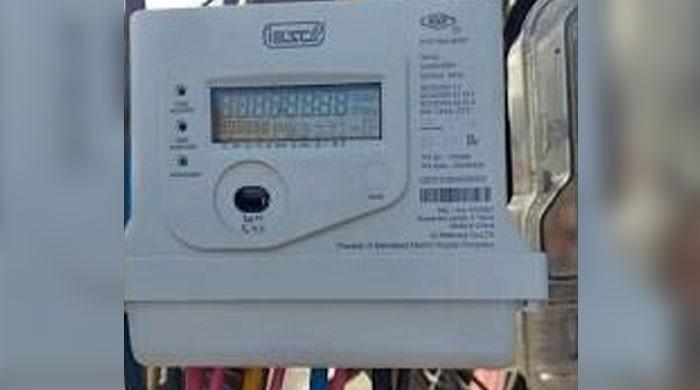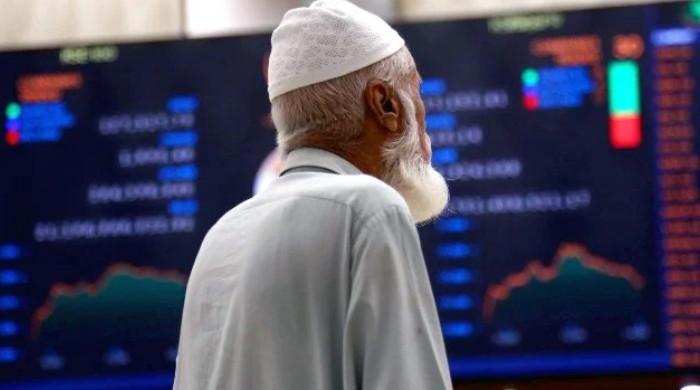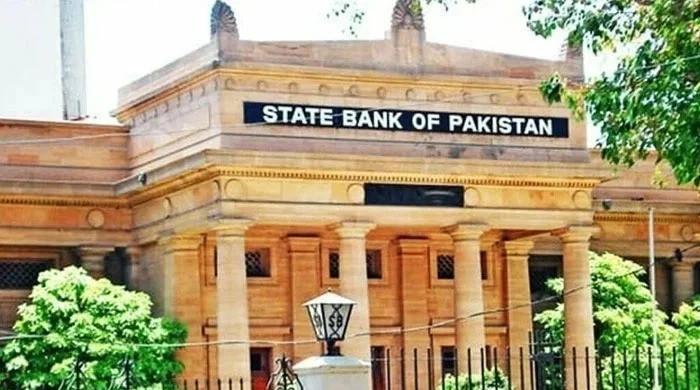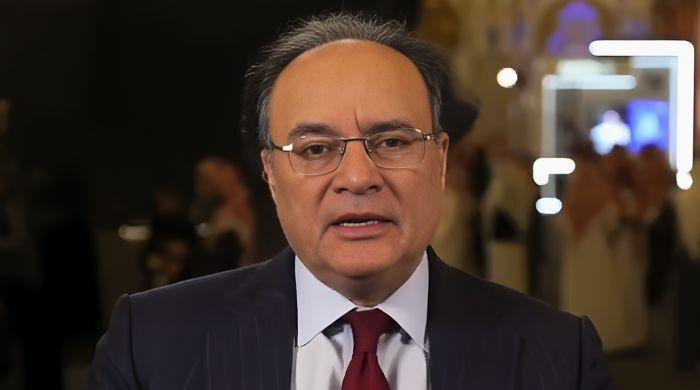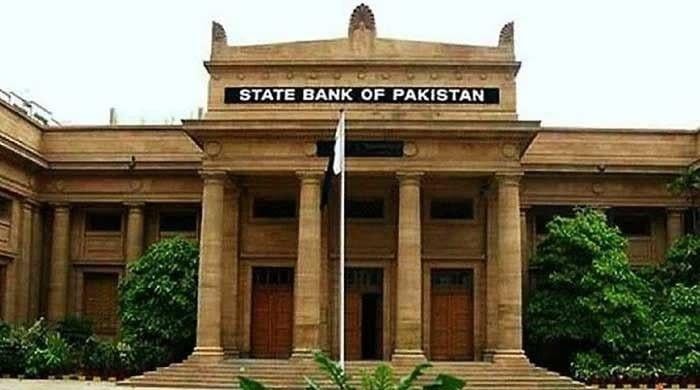KSE-100 index falters below 47,000-point mark
Lack of triggers, economic uncertainty and foreign selling main factors behind the decline
September 18, 2021
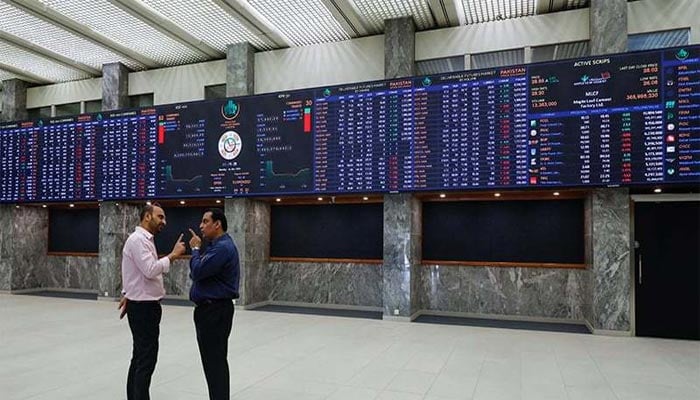
- The benchmark KSE-100 index closes the week at 46,636.08, down 562 points.
- The decline comes on the back of uncertainty on the economic front coupled with global developments.
- Investors remain cautious ahead of the monetary policy announcement by the central bank on Monday.
KARACHI: Bears regained control of the Pakistan stock market in the outgoing week as looming uncertainty on the economic front coupled with global developments drove the index back into the negative territory.
Lack of positive triggers dimmed investor sentiments and fuelled profit-taking. Resultantly, the KSE-100 index dropped 562 points or 1.19% to close at 46,636.08 points.
Trading kicked off on Monday as investors cherished the approval of Pakistan Oil Refinery Policy 2021 by the Cabinet Committee on Energy (CCoE). Moreover, optimism in banks and the power sector lifted the benchmark KSE-100 index.
The trend, however, reversed and the market recorded losses during the next two sessions. Persistent depreciation of the rupee against the US dollar coupled with speculations regarding the International Monetary Fund (IMF) review — due later this month — on the $6 billion loan programme, stopped investors from assuming fresh positions and the benchmark index fell below the 47,000-psychological barrier.
Fortunately, the tables turned on Thursday as bulls staged a comeback at the Pakistan Stock Exchange as the market players cheered the easing of COVID-related restrictions in the country. Moreover, technology and exploration and production sectors recouped losses during the day.
However, after a day’s respite, the market once again succumbed to selling pressure on the last day of the trading week due to New Zealand's cancellation of its tour to the country over security concerns.
Moreover, investors were gripped by fear as the State Bank of Pakistan (SBP) released some major economic data during the second session. According to the central bank, the current account deficit rose to $1.5 billion in August compared to $0.8 billion in July. Meanwhile, foreign direct investment dropped by 10% year-on-year.
Investors were also wary ahead of the monetary policy announcement by the central bank on Monday (September 20).
Foreign selling continued this week, settling at $10.9 million against a net sell of $18.6 million recorded last week. Selling was witnessed in commercial banks ($12.7 million) and all other sectors ($2.2 million).
On the domestic front, major buying was reported by individuals ($16.8 million) and banks/Development Financial Institutions ($4 million).
During the week under review, average volumes clocked in at 400 million shares (down by 7% week-on-week), meanwhile average value traded settled at $90 million (up by 3% week-on-week).
Gainers and losers during the week
Sector-wise negative contributions came from cement (-287 points), refinery (-55 points), oil and gas marketing companies (-54 points), food and personal care products (-51 points), and technology and communication (-44 points). Sectors that contributed positively were commercial banks (+130 points), tobacco (+6 points) and synthetic and rayon (+5 points).
Scrip-wise major losers were Lucky Cement (-131 points), Meezan Bank (-102 points), Systems Limited (-70 points), Maple Leaf Cement (-43points) and DG Khan Cement (-41 points). On the flip side, major gainers were UBL (+73 points), HBL (+56 points) and Fauji Fertilizer (+50 points).
Prediction for next week
A report from Arif Habib Limited stated: “Going forward, we expect the market to remain positive in the upcoming week attributable to talks with IMF for the sixth tranche to start at the end of the current month.”
On the other hand, a decline in COVID-19 infection rates in Pakistan and a slowdown in global oil prices “would relieve pressure off the external account.”
However, current macro-economic concerns such as rising imports, higher inflation due to increasing petroleum prices, and pressure on currency could deteriorate investors’ sentiment, the brokerage house predicted.
According to the report, the preferred stocks are Engro Polymer and Chemicals, Pakistan State Oil, Oil and Gas Development Company, Hub Power Company, HBL, MCB, Fauji Fertilizer, Lucky Cement, Attock Cement, Engro Corporation, MCB, Indus Motor Company, UBL, Pakistan Telecommunication, Sui Northern Gas Pipelines, Unity Foods, Hi-Tech Lubricants, and Interloop Pakistan.
“The KSE-100 is currently trading at a PER of 5.8x (2021) compared to Asia-Pacific regional average of 14.4x while offering a dividend yield of 7.9% versus 2.3% offered by the region,” the brokerage house stated.




